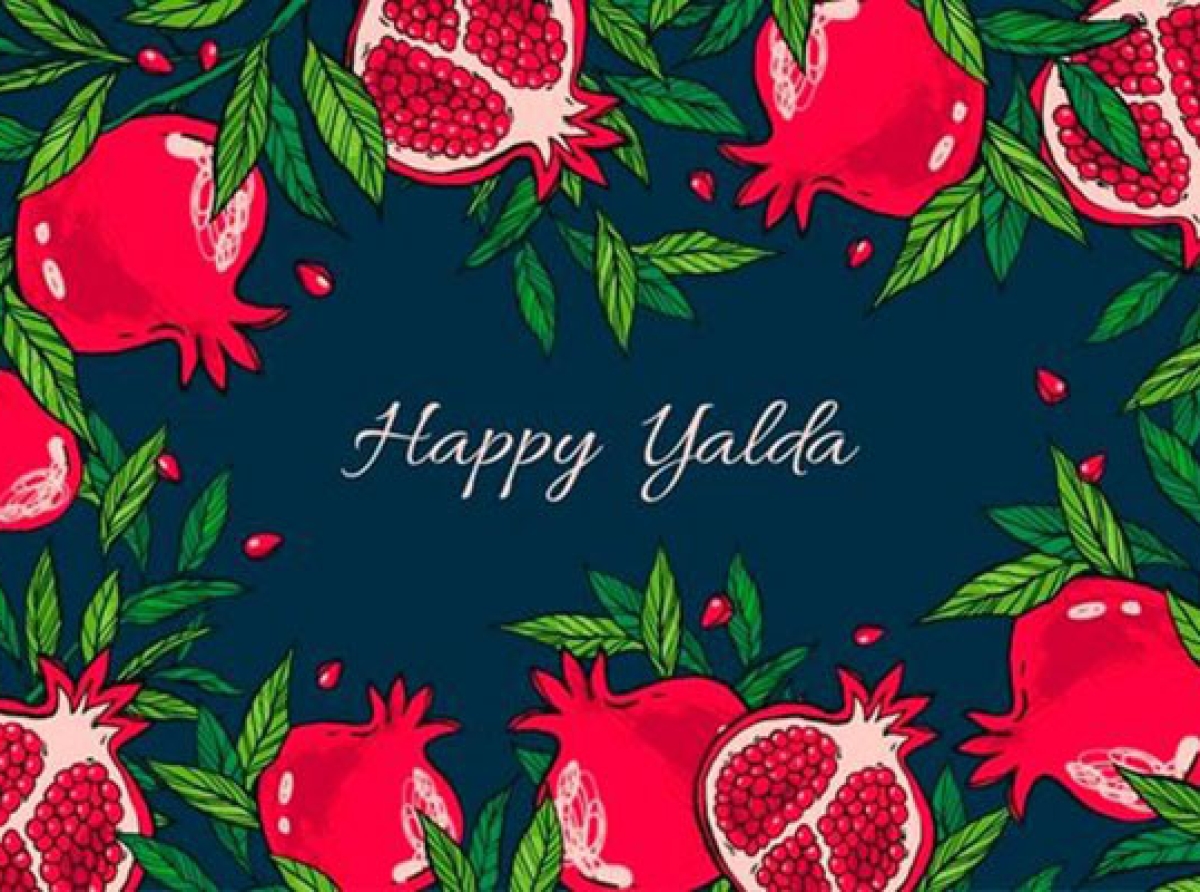Yalda Night
Shabe Yalda or Yalda night is an evening of festivities and merriment that begins when the sun sets on the last day of fall (last day of Maah e Azar on Jalali Calendar) and continues until the dawn of the first day of winter, or first day of Maah e Dey. This night was called Yalda which meant rebirth (of the sun), and it was celebrated for the triumph of light over darkness. They built fires on sundown of the last day in fall and kept them burning until the first rays of sun the following day. During this night, they gathered with family and friends, ate delicious food, drank, and sang happy songs all night and listened to stories about old times.
Yalda, which means birth, is a Syriac word imported into the Persian language. Because Yalda is the longest and darkest night, it has come to symbolize many things in Persian poetry; separation from a loved one, loneliness and waiting. After Yalda, a transformation takes place – the waiting is over, light shines and goodness prevails. Some sources say Yalda is taken from Islamic times. In pre-Islamic Zoroastrian tradition the longest and darkest night of the year was a particularly inauspicious day, and the practices of what is now known as "Shab-e Chelleh" were originally customs intended to protect people from evil during that long night.
What do people do in Yalda night? During this night, Persians enjoy delicious food, sweet and juicy fruits, and delectable sweets paired with hot tea. Reading the enchanting poems by Hafez, and great Persian mythology such as Shahnameh, Khosro va Shireen, Leili va Majnoon make this otherwise cold winter night a delightful gathering with family and friends.
On Yalda night, the oldest member of the family says prayers expressing gratitude to God for previous year's blessings, and prays for prosperity in the coming year, and the other members of the family raise their hands to the sky saying 'Ameen'. After praying, the oldest member cuts the watermelon, which symbolizes the removal of sickness and pain from the family, and gives everyone a share.
One of the other traditions of Yalda night, which has been added in recent centuries, is the recitation of the classic poetry of Hafez, the Iranian poet of 14th century AD. Each member of the family makes a wish and randomly opens the book and asks the eldest member of the family to read it aloud. What is expressed in that poem is believed to be the interpretation of the wish and whether and how it will come true. This is called Faal-e Hafez (Hafez Omen).
What do people eat in Yalda Night?
Food plays a central role in any form of the celebrations in Iran. In most parts of the country, the extended family come together and enjoys a fine dinner, The special foods that are prepared for Yalda night change from family to family and depend on the availability of ingredients in different regions of Iran. The variety is endless but to mention a few: fish & rice, Fesenjoon, Khoresh Bademjan, Aash Reshteh, and traditional desserts such as Fereni and Sholeh Zard may be prepared for this night,
In addition, the ancient myth is that eating (watermelon) on Yalda night makes the person immune to cold winter weather. Iranians believe those who begin winter by eating summer fruits would not fall ill during the cold season. Therefore, eating watermelons is one of the most important traditions in this night. Yalda Night is celebrated in different parts of the country traditionally as a welcome to winter, though it encompasses regional variations.
HAPPY YALDA NIGHT
Translator: Faeghe .Ebrahimpour

 En
En  Fa
Fa 